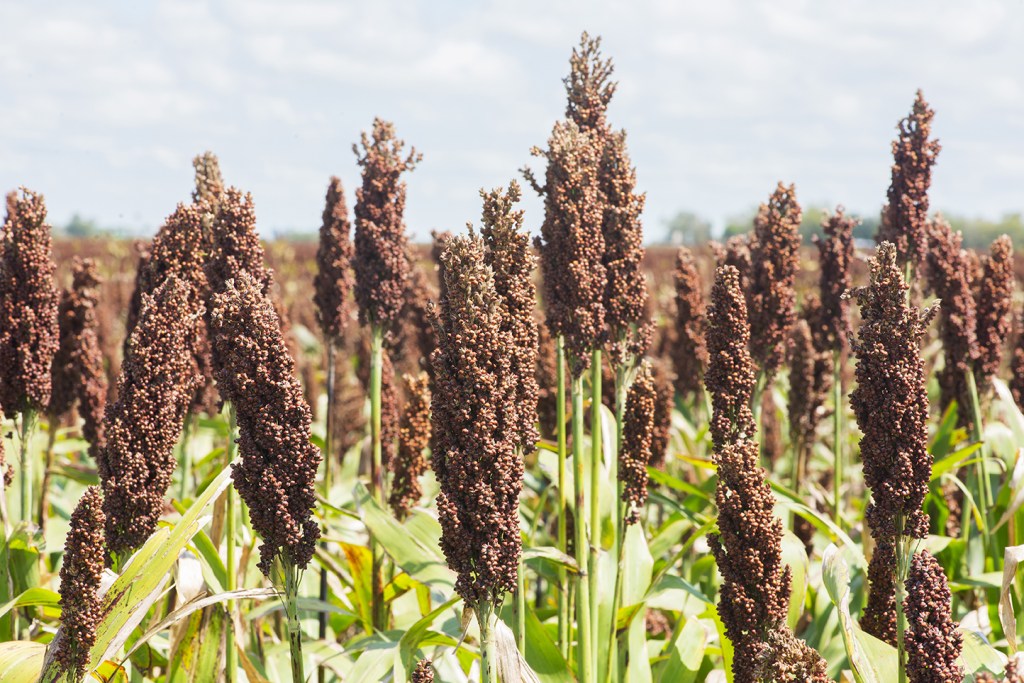HudsonAlpha initiative aided by $6.1M Gates Foundation grant
Published 5:30 am Monday, January 30, 2017

- This is a photo of a sorghum bicolor field at Santa Fe, Argentina. Sorghum is very resilient to drought and heat stress. Natural genetic diversity in sorghum makes it a promising system for identifying stress-resistance mechanisms in grasses that may have been lost during the domestication of related cereal crops.
Huntsville-based HudsonAlpha Institute for Biotechnology is participating in a three-year project to assist farmers in the developing world with help from a $6.1 million grant from the Bill & Melinda Gates Foundation.
HudsonAlpha is also partnering with the Donald Danforth Plant Science Center, one of the world’s largest independent plant science institutes. The project will examien ways to accelerate the development and deployment of advanced sorghum phenotyping and breeding technologies in support of improved varieties for smallholder farmers.
Trending
“It’s a pleasure to work with the Danforth Center on such an important project with potential for worldwide impact,” said Jeremy Schmutz, a faculty investigator at HudsonAlpha who leads the Institute’s work on the project. “We look forward to applying our plant genome sequencing and analysis tools to optimize sorghum, a critical crop for the socioeconomic stability and food security of people living in sub-Saharan Africa.”
Schmutz is also the co-director, with Jane Grimwood, PhD, of the HudsonAlpha Genome Sequencing Center.
“The Gates Foundation recognizes that most smallholder farmers rely on small plots of land for food and income,” said James Carrington, Ph.D., president of the Danforth Center. “This grant will help increase the productivity of a crop that can, in a sustainable and effective way, reduce hunger and poverty and make communities economically stronger and more stable over the long term.”
The funding broadens the impact of the TERRA-REF program launched in June 2015 by the Danforth Center with support from the U.S. Department of Energy’s Advanced Research Program (ARPA-E). TERRA-REF aims to optimize breeding strategies for improving the yield and stress tolerance of sorghum (Sorghum bicolor), a leading bioenergy feedstock crop in the United States, but also a critical source of nutrition for millions of people living in Sub-Saharan Africa.
The Sorghum Genomics Toolbox, led by the Danforth Center with partners at ICRISAT (India), CERAAS-ISRA (Senegal), CIRAD (France), EIAR (Ethiopia), HudsonAlpha Institute for Biotechnology, Kansas State University, University of Arizona, George Washington University, and NRgene (Israel), is employing cutting-edge technologies to sequence and analyze grain sorghum genomes, capture tens of millions of phenotypic observations over the course of a growing season, and accelerate breeding efforts by connecting phenotypes to genotypes in the field.
“Initially we launched the TERRA-REF project to gain a greater understanding of the phenotypic and genomic variation of bioenergy sorghum, and to lay the foundation for deploying computationally-enabled breeding strategies optimized for U.S. sorghum based biofuel feedstock production, but the same strategies are directly extendable to food security crops,” said Todd Mockler, Ph.D., Geraldine and Robert Virgil Distinguished Investigator, Danforth Center. “I’m grateful to the Bill & Melinda Gates Foundation for recognizing the need to extend the application of advanced genomics and phenomics technologies to food crops that will benefit millions of people living in the developing world.”
Trending
Sorghum is a member of the grass family and is grown worldwide. It is of interest, not only because it is a staple crop in Sub-Saharan Africa, but because grain sorghum yields have been flat or declining due to the lack of sufficient investment in the development of new improved varieties. Sorghum is very resilient to drought and heat stress. Natural genetic diversity in sorghum makes it a promising system for identifying stress-resistance mechanisms in grasses that may have been lost during the domestication of related cereal crops. It is among the most efficient crops in conversion of solar energy and use of water, making it an ideal crop to target for improvement to meet the predicted doubling of global food demand by 2050.
“The National Sorghum Producers is excited to see the additional investment into sorghum research and breeding which will help farmers around the world as they continue to deal with the challenges of advancing sorghum genetics to address climate variability and the needs for increased food sustainability,” said Tim Lust, chief executive officer of the National Sorghum Producers.





